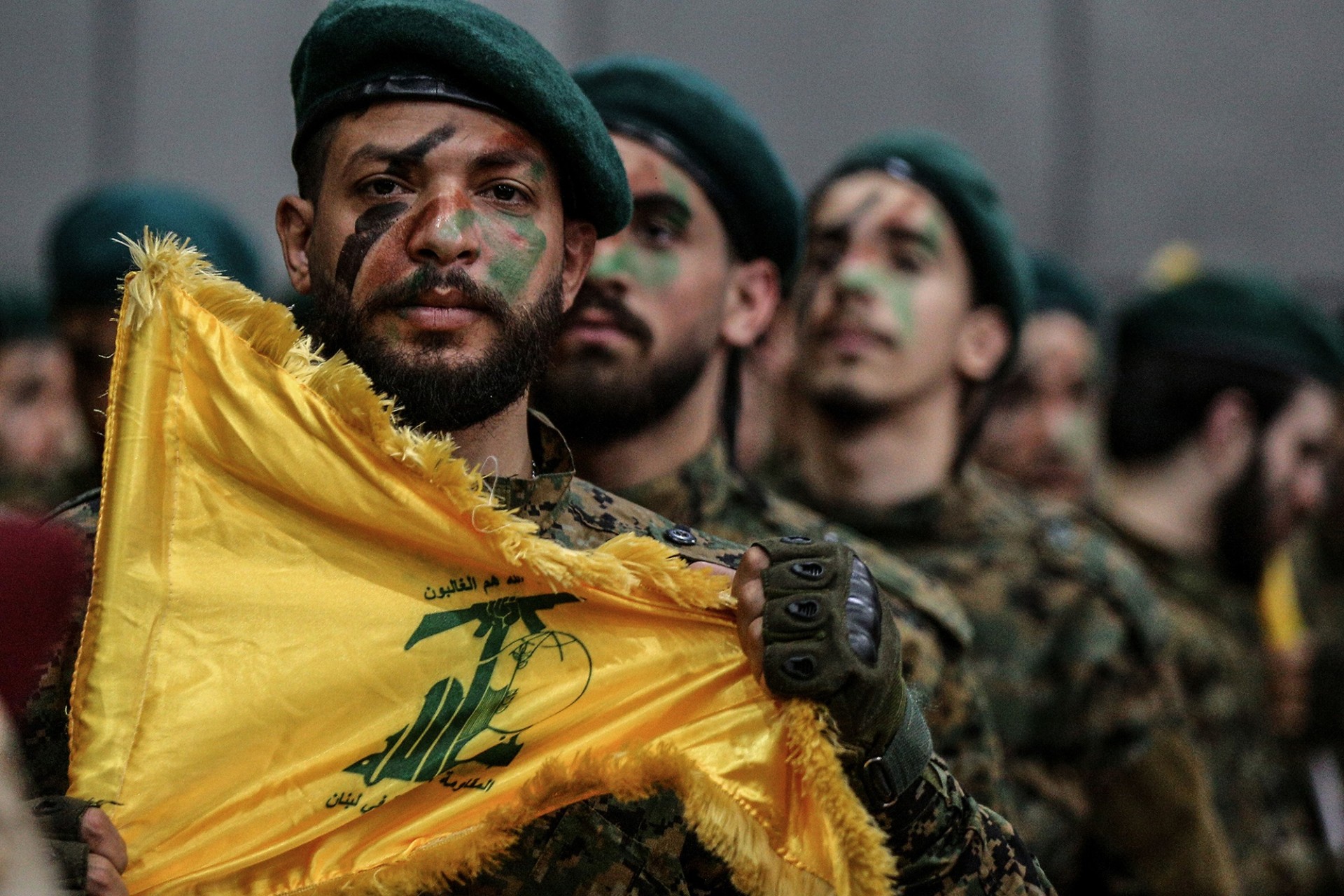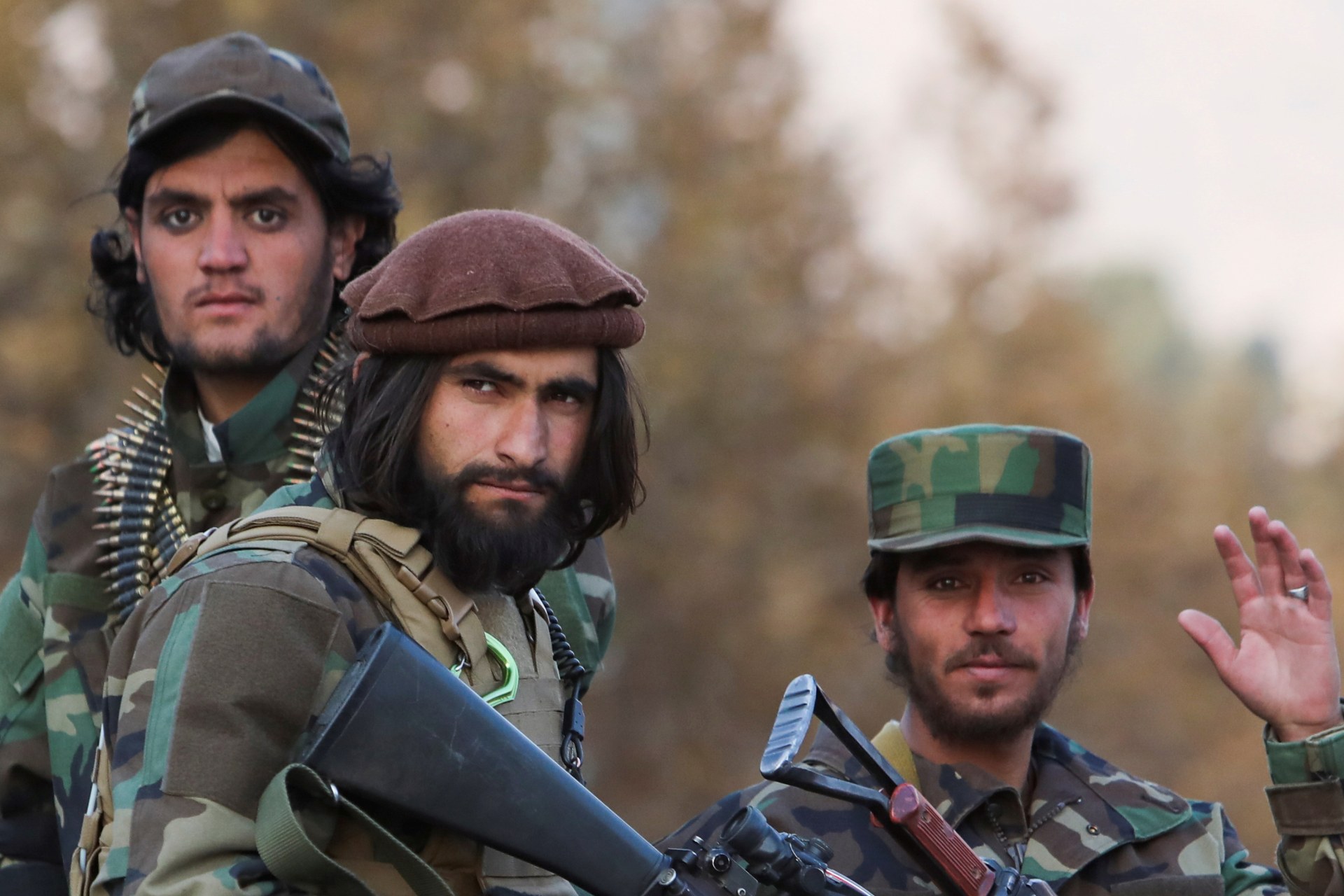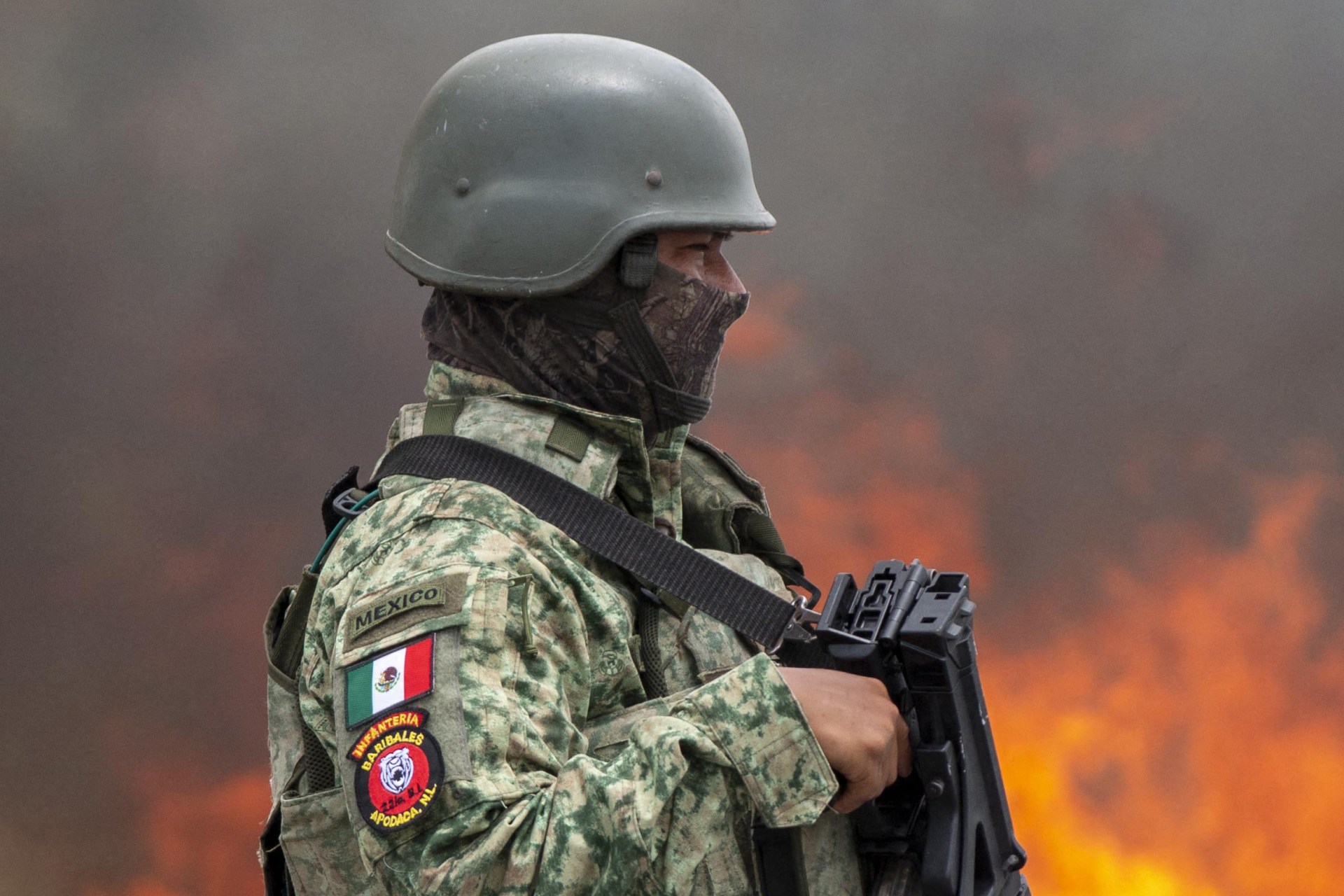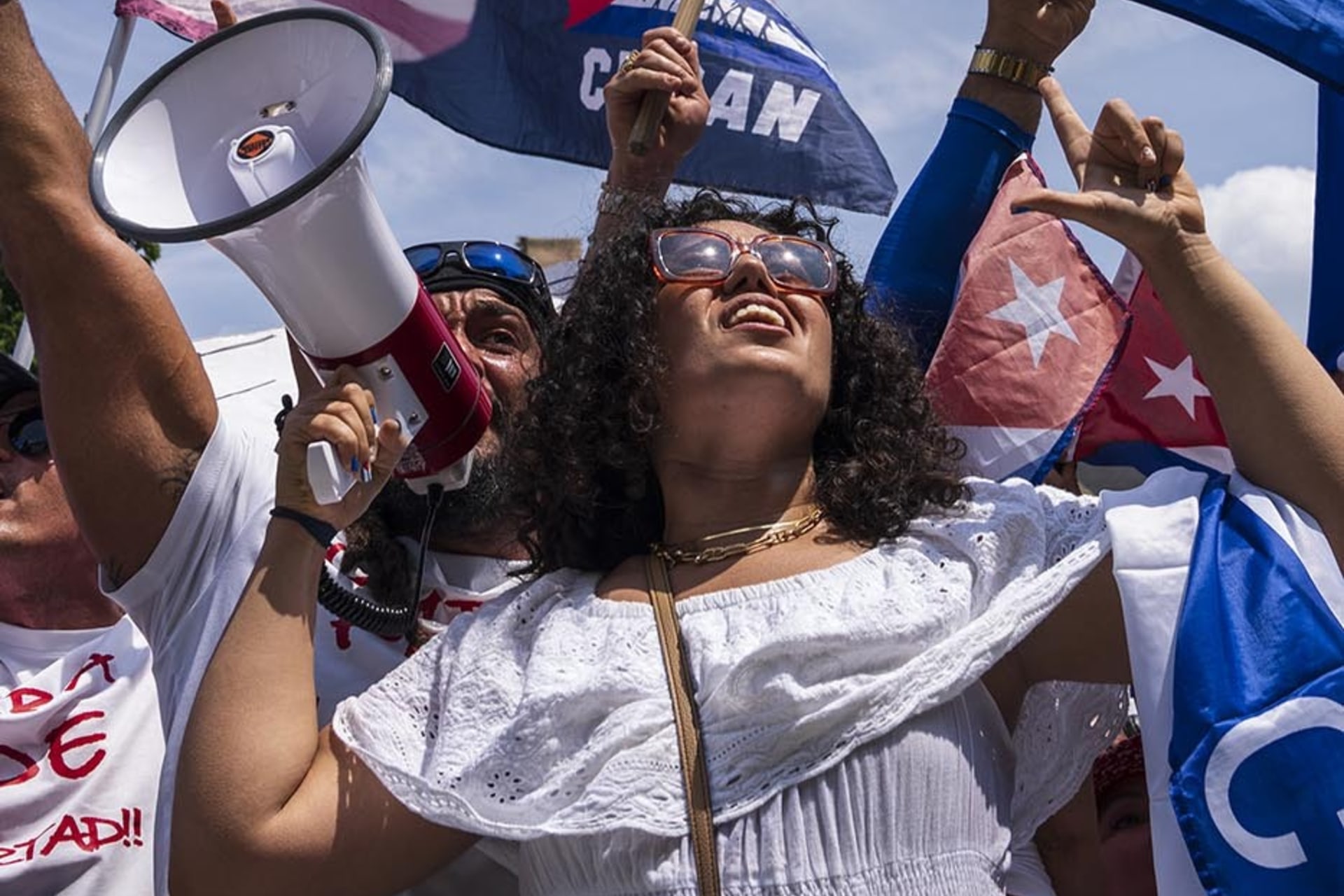Lashkar-e-Taiba (Army of the Pure) (aka Lashkar e-Tayyiba, Lashkar e-Toiba; Lashkar-i-Taiba)
Updated
A profile of the Pakistani militant group India blames for some of the most severe terror attacks it has suffered in recent years, including the Mumbai assault of November 2008.
This publication is now archived.
Introduction
The Indian government has often accused the group Lashkar-e-Taiba (LeT) of terrorist attacks, including the November 2008 deadly assault in Mumbai that killed nearly two hundred people and injured more than three hundred. LeT is among several banned Pakistani militant groups that experts say received backing from Pakistan’s intelligence agency, the ISI, to fight in Indian-administered Kashmir. Analysts say the group continues to operate freely inside Pakistan under a different name and has now become a global terrorist organization.
Origins of a Movement
Lashkar-e-Taiba, meaning “army of the pure” has been active since 1993. It is the military wing of the well-funded Pakistani Islamist organization Markaz-ad-Dawa-wal-Irshad, which was founded in 1989 and recruited volunteers to fight alongside the Taliban. During the 1990s, experts say LeT received instruction and funding from Pakistan’s intelligence agency, the Inter-Services Intelligence (ISI), in exchange for a pledge to target Hindus in Jammu and Kashmir and to train Muslim extremists on Indian soil. Pakistan’s government has repeatedly denied allegations of supporting terrorism.
Until it was banned in Pakistan in 2002, LeT claimed responsibility for numerous attacks, including an attack on the army barracks at Delhi’s Red Fort in 2000, killing three people; a January 2001 attack on Srinagar airport that killed five Indians; and an attack in April 2002 against Indian border security forces that left at least four dead. But after being outlawed, it has not admitted to attacks. It denied responsibility for the November 2008 attack in Mumbai, the July 2006 attack on the Mumbai commuter rail, and the 2001 attack on the Indian parliament, despite the Indian government’s allegations.
Husain Haqqani, now Pakistan’s ambassador to Washington, wrote about jihadist groups in a 2005 essay while he was a visiting scholar at the Washington-based Carnegie Endowment for International Peace. In the essay, he said: “The most significant jihadi group of Wahhabi persuasion (PDF) [influenced by the doctrine of 18th-century Islamic scholar Muhammad ibn-Abdul Wahhab] is Lashkar-e-Taiba” which is backed by Saudi money and protected by Pakistani intelligence services. According to South Asia Terrorism Portal (SATP), a terrorism database on the region, LeT’s professed ideology goes beyond merely challenging India’s sovereignty over the state of Jammu and Kashmir. The LeT’s agenda, as outlined in a pamphlet titled, “Why are we waging jihad,” includes the restoration of Islamic rule over all parts of India, it says. The pamphlet also declares the United States, Israel, and India as existential enemies of Islam, writes Haqqani. The portal adds: LeT “seeks to bring about a union of all Muslim majority regions in countries that surround Pakistan.” According to Haqqani, LeT justifies its ideology by the Quranic verse that says, “You are obligated to fight even though it is something you do not like” (2:216).
Leadership and Funding
The group has its headquarters in Muridke near Lahore in Pakistan, say experts, and is headed by Hafiz Muhammad Saeed, a former Islamic-studies professor. In December 2008, New Delhi demanded that Islamabad hand over Saeed as a suspect wanted for terrorism in India, including the November 2008 Mumbai attacks. In February 2009, Pakistani officials admitted that the attacks had been planned in Pakistan, and in November, a Pakistani court charged seven men for planning the attacks, including LeT’s chief of operations Zaki-ur-Rehman Lakhvi. Pakistan says it does not have evidence to charge Saeed.
 SATP says LeT’s headquarters complex houses a madrassa (seminary), a hospital, a market, a large residential area for the group’s scholars and faculty members, a fish farm, and agricultural tracts. The terrorism portal says the group operates 16 Islamic institutions, 135 secondary schools, an ambulance service, mobile clinics, blood banks, and several seminaries across Pakistan. The U.S. State Department says the actual size of the group is unknown but contends it has several thousand members in the Kashmir region. It says most LeT members are Pakistanis from madrassas across Pakistan and Afghanistan. It also notes the group is alleged to augment its strength through collaboration with terrorist groups comprised of non-Pakistanis. The group uses assault rifles, light and heavy machine guns, mortars, explosives, and rocket-propelled grenades. LeT publishes its views and opinion through its website, an Urdu-language monthly journal, Al-Dawa, and an Urdu weekly, Gazwa. It also publishes several other magazines, including Voice of Islam, an English-language monthly.
SATP says LeT’s headquarters complex houses a madrassa (seminary), a hospital, a market, a large residential area for the group’s scholars and faculty members, a fish farm, and agricultural tracts. The terrorism portal says the group operates 16 Islamic institutions, 135 secondary schools, an ambulance service, mobile clinics, blood banks, and several seminaries across Pakistan. The U.S. State Department says the actual size of the group is unknown but contends it has several thousand members in the Kashmir region. It says most LeT members are Pakistanis from madrassas across Pakistan and Afghanistan. It also notes the group is alleged to augment its strength through collaboration with terrorist groups comprised of non-Pakistanis. The group uses assault rifles, light and heavy machine guns, mortars, explosives, and rocket-propelled grenades. LeT publishes its views and opinion through its website, an Urdu-language monthly journal, Al-Dawa, and an Urdu weekly, Gazwa. It also publishes several other magazines, including Voice of Islam, an English-language monthly.
According to most sources, the group collects donations from the Pakistani expatriate community in the Persian Gulf and Britain as well as from Islamic NGOs, and Pakistani and Kashmiri businessmen. Experts say it also receives funding from the ISI and Saudi Arabia. LeT also coordinates its charitable activities through its front organization Jamaat-ud-Dawa (JUD), which spearheaded humanitarian relief to the victims of the 2005 earthquake in Kashmir.
Indictment of American citizen (NYT) David C. Headley in December 2009 in connection with the Mumbai attacks raised concerns about LeT’s international links. Coordinator for counterterrorism at the U.S. State Department, Ambassador Daniel Benjamin noted, “the example of David Headley indicates al-Qaeda is not the only group with global ambitions (PDF) that we have to worry about.” He added: “[V]ery few things worry me as much as the strength and ambition of LeT, a truly malign presence in South Asia.”
Banned Organization
India blamed the LeT for the December 2001 attack on the Indian Parliament in New Delhi, and mobilized some 700,000 troops along the Pakistan border, threatening war unless Islamabad ended all cross-border infiltration of Islamic militants. This action triggered a corresponding Pakistani military mobilization. Washington helped defuse tensions, say experts, by formally acknowledging the link between Kashmiri terrorist groups operating in Pakistan and the Pakistani state for the first time. The U.S. addition of LeT to its Foreign Terrorist Organizations List in 2002 forced former Pakistani President Pervez Musharraf to ban the group inside Pakistan. The UN declared the group a terrorist organization in 2005.
Experts say the group then went underground, splintered, began using different names, and stopped claiming responsibility for attacks. In an August 2008 report (PDF), K. Alan Kronstadt, a specialist in South Asian affairs for the Congressional Research Service, wrote LeT is now called Jamaat-ud-Dawa (the Society for Preaching). India says that over the last several years, LeT has split into two factions, al-Mansurin and al-Nasirin.
Under U.S. pressure, Musharraf placed Jamaat-ud-Dawa on a watch list in November 2003. However, Haqqani wrote in 2005 that Pakistani authorities have been reluctant to move against LeT or Jamaat-ud-Dawa. He notes that while LeT scaled down armed attacks against India to help Pakistan honor its commitments to the United States and India, Saeed remained free and continued to expand his organization despite divisions in its leadership.
 Experts say during the massive earthquake in the Kashmir region in 2005, Jamaat-ud-Dawa became a major player in relief and reconstruction efforts. Since then, the BBC reports the group has again been allowed to openly collect funds in Pakistan, officially for reconstruction work. Many of their offices have reopened and its members have played a prominent role in rebuilding. But under U.S. and Indian pressure after the Mumbai attacks in November 2008, the United Nations declared Jamaat-ud-Dawa as an alias for LeT. According to reports in the Indian media, Jamaat-ud-Dawa continues to provide humanitarian aid--most recently in 2008 to internally displaced persons in Pakistan’s northwest--through the charitable organization Falah-i-Insaniyat Foundation.
Experts say during the massive earthquake in the Kashmir region in 2005, Jamaat-ud-Dawa became a major player in relief and reconstruction efforts. Since then, the BBC reports the group has again been allowed to openly collect funds in Pakistan, officially for reconstruction work. Many of their offices have reopened and its members have played a prominent role in rebuilding. But under U.S. and Indian pressure after the Mumbai attacks in November 2008, the United Nations declared Jamaat-ud-Dawa as an alias for LeT. According to reports in the Indian media, Jamaat-ud-Dawa continues to provide humanitarian aid--most recently in 2008 to internally displaced persons in Pakistan’s northwest--through the charitable organization Falah-i-Insaniyat Foundation.
LeT is also suspected of involvement in the December 2001 attack of New Delhi’s Parliament, the 2006 Mumbai train bombings, and the February 2007 blast of a train running between India and Pakistan. A little-known group called Lashkar-e-Qahar in July 2006 said it was associated with LeT and orchestrated the Mumbai bombings. New Delhi has also accused the Student Islamic Movement of India of connections with LeT and the Mumbai blasts as well as terrorist attacks in August 2003.
In its 2008 report on international religious freedom, the U.S. State Department said schools run by the Jamaat-ud-Dawa are “considered to be a front organization of the proscribed Lashkar-e-Taiba terrorist group, serve as recruitment centers for extremists.”
Possible links to al-Qaeda
The U.S. State Department says a senior al-Qaeda member Abu Zubaydah was captured at an LeT safe house in Faisalabad in Pakistan in 2002, which suggested that some LeT members were facilitating the movement of al-Qaeda members in Pakistan.
The U.S. State Department’s 2007 country report on terrorism says Pakistan-based LeT and other Kashmir-focused groups continued regional attack planning. “In 2007, Kashmir-focused groups continued to support attacks in Afghanistan, and operatives trained by the groups” continued to feature in al-Qaeda’s transnational attack planning, it contends.
Ashley Tellis, a senior associate for the Carnegie Endowment for International Peace says LeT has grown into a terrorist organization of global reach (CNN). According to Tellis, LeT today operates in Kashmir, Afghanistan, Chechnya, and has been noticed in Iraq. It has fundraising operations in western Europe, and in Africa, he says.t
Colophon
Staff Writers
- Jayshree Bajoria





